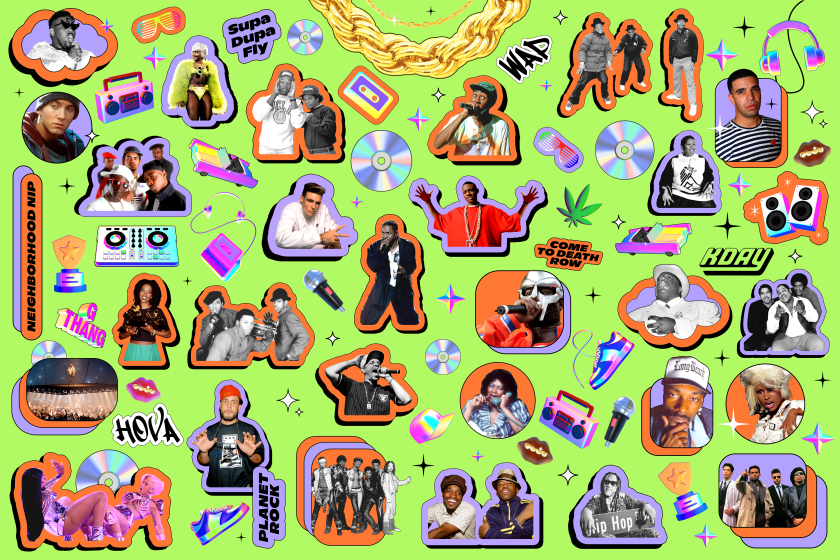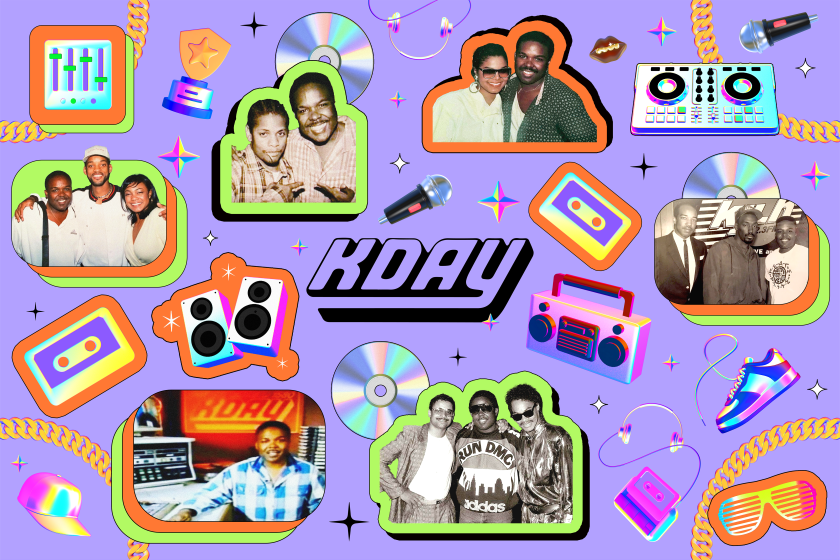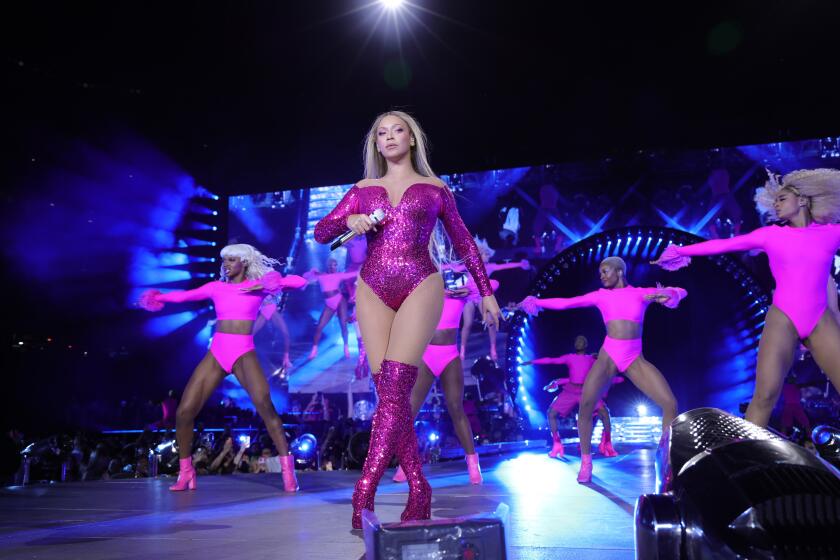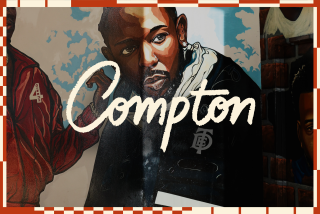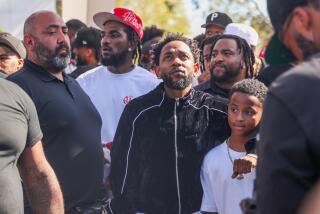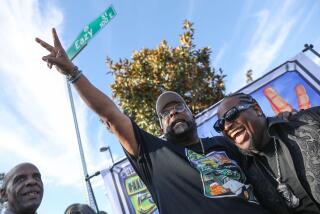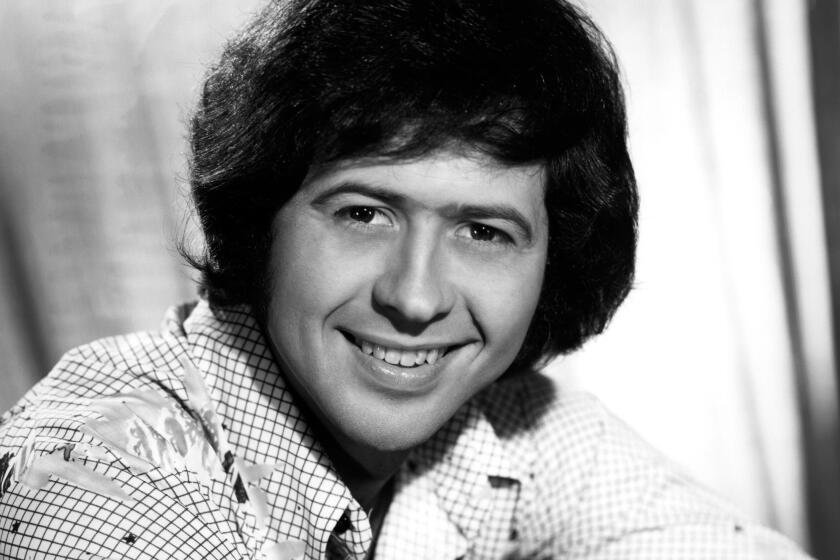Eazy-E is getting a Compton street named after him: Rapper ‘loved where he was from’
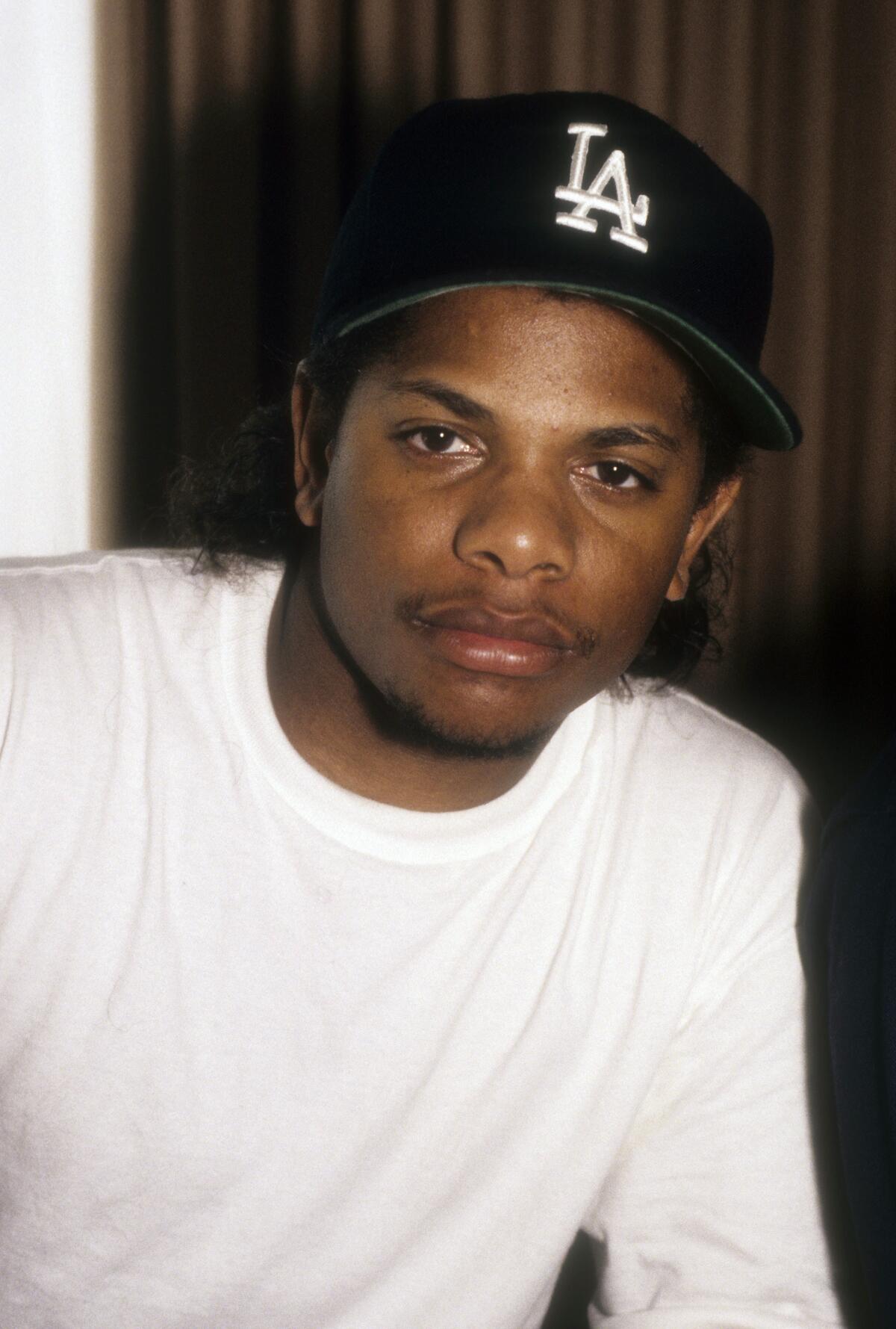
Soon, you can be cruising down Eazy Street in your ’64.
Next week, Compton will unveil the newly renamed road dedicated to the late rap icon Eazy-E, who was born and raised in the city. The rapper, alongside fellow N.W.A. members Dr. Dre, Ice Cube, DJ Yella, MC Ren and Arabian Prince, popularized Compton through their era-defining West Coast rap albums. Eazy-E, whose real name is Eric Lynn Wright, died in March 1995 at age 30, days after he announced he had been diagnosed with AIDS.
In September, the Compton City Council unanimously voted to rename the 100 block of Auto Drive South, which runs off of Alameda Street and into the Gateway Towne Center shopping plaza, as “Eazy Street.” A block party will be held at the street on Nov. 22 to celebrate the moment with performances and appearances from the “Boyz-n-the-Hood” rapper’s children and his former collaborators.
As hip-hop celebrates its 50th anniversary on Aug. 11, The Times looks back at the artists, songs and innovations that changed the course of popular culture.
“My dad loved where he was from,” said Erica Wright, the rapper‘s daughter, in a statement. “Nothing could keep him from Compton. Nothing could keep his parents from Compton. This will forever be a highlight in my life.”
Eazy-E’s son Eric Darnell Wright Jr., who rapped under the name Lil Eazy-E, added, “The street naming serves as a symbol of recognition and commemoration, ensuring that our father ... has a legacy that will be remembered and celebrated for generations to come.”
“It is a wonderful way for the city of Compton to honor his influence and the cultural significance that he brought to the community,” said Wright Jr., who will perform next week alongside DJ Yella.
In 1983, KDAY-AM became the first radio station to play wall-to-wall rap music, thanks to an ambitious new music director and some soon-to-be famous DJs.
Compton native Eric Lynn Wright was a high school dropout who dealt drugs for a living before shooting to stardom in 1988 when his rap group, N.W.A., dropped the debut album “Straight Outta Compton” as well as Wright’s solo project, “Eazy-Duz-It.” Both albums were released under Wright’s label, Ruthless Records, which he co-founded with Jerry Heller. The releases would be considered the opening of a new era for hip-hop, a genre and industry that had primarily been defined and commercially dominated until that point by East Coast acts.
With iconic music videos showing Wright and his group parading through the streets of Compton, they placed the Los Angeles County city in America’s pop-cultural consciousness.
Alonzo Williams, one of Wright’s earliest collaborators, is known as the godfather of West Coast hip-hop and now heads the Compton Entertainment Chamber of Commerce. He spearheaded the naming of Eazy Street. Williams was the owner of Compton’s Eve After Dark nightclub, which helped launch acts including Dr. Dre and Eazy-E and was referenced in the 2022 Super Bowl halftime show.
Rapper Eazy-E (Eric Wright) has taken on a new and rather tame venture, by his usual standards: hosting a weekly , party-style radio show on KKBT-FM (“The Beat,” 92.3) Wright, who founded the rap group N.W.A., first drew controversy for writing a song that many believed advocated violence against police officers, and then later for championing the cause of LAPD Officer Theodore Briseno, who was charged with beating Rodney G.
Wright went to Williams for advice when setting up Ruthless Records and introduced him to Heller, Williams recalled in an interview with The Times’ 404 correspondent Greg Ruben. And even after Wright found fame, Williams said, the rapper would often visit him at his garage, where N.W.A. recorded their first songs. The two would pass time cracking jokes.
Wright was active in the community and often paid for and hosted events for residents, Williams said. He hoped having Eazy Street would be an extension of that legacy.
“People come to Compton to see what Compton has to offer,” he said, “and there are no tourist attractions in Compton.” He also plans to start the city’s own walk of fame.
Beyoncé and her family are using their platform to revive a conversation we still need: how to stop new infections, especially among women of color.
More to Read
The biggest entertainment stories
Get our big stories about Hollywood, film, television, music, arts, culture and more right in your inbox as soon as they publish.
You may occasionally receive promotional content from the Los Angeles Times.
